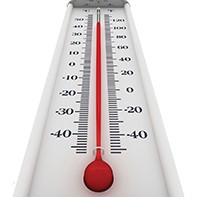Peer Reviewed
Feature Article Endocrinology and metabolism
Heat stroke and heat-related illness: diagnosis, management and prevention
Abstract
Heat-related illness represents a spectrum of diseases. Heat stroke is a medical emergency requiring immediate cooling and hospitalisation. Less severe disease can be managed in the community by GPs.
Key Points
- Heat-related illness represents a spectrum of diseases, with heat stroke being the most severe. Exertional and classical (nonexertional) forms exist.
- Heat stroke is a medical emergency, requiring immediate cooling and hospitalisation to prevent mortality.
- Less severe disease may be managed in the community with appropriate hydration and prompt (same-day) follow up of pathology results, including an electrocardiogram.
- Public education and optimisation of general health are paramount in reducing morbidity and mortality in at-risk groups.
- Significant heat-related mortality is due to an increased incidence of cardiac, respiratory, renal and psychiatric illnesses in patients not meeting the diagnostic criteria for heat stroke. These conditions should be managed as per normal protocols, but with cooling where required.
Purchase the PDF version of this article
Already a subscriber? Login here.

